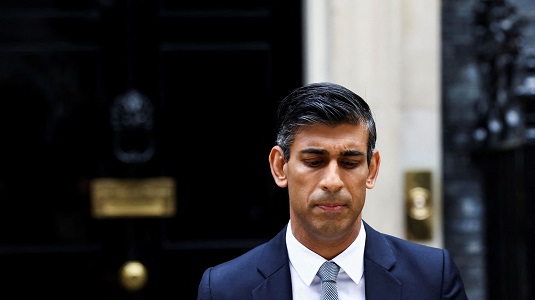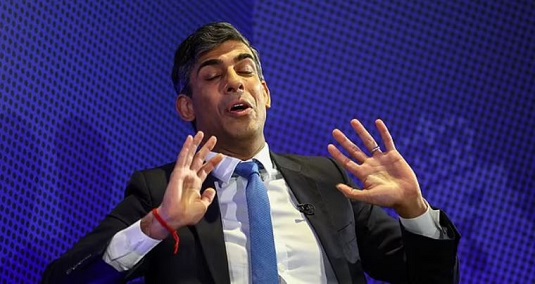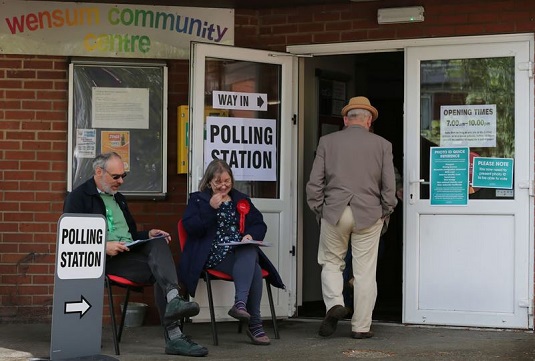
Let's consider some recent evidence. John Major's small majority in 1992 and, in conventional terms, the effective opposition of John Smith and Tony Blair should have meant that his government was focused. Instead it was the byword for chaotic government, until the last four Tory Prime Ministers determined new yardsticks for fractiousness and dysfunction. Similarly, even though the Tories were still far behind Labour in 2005, once Dave was elected the liberal green affectations and the snake oil marketeering hardly induced discipline into the government's ranks. After Gordon Brown bottled the election that never was, compounded by debacles such as the abolition of the 10p tax rate for low earners and MPs' expenses, fissures were driven through the parliamentary party. Again, Dave's smooth, electorally popular media-savvy opposition did not make Labour put on its grown-up pants. If Keir Starmer's Labour was to win a modest majority instead of the silly numbers pollsters are suggesting, would that mean "better" government?
Russ is basing his assertion on nothing. It's magical thinking based on constitutional conjuring. For one, the politics is absent. For example, looking at the Conservative Party's now, if Labour were to only win a modest majority what's stopping the Tories tearing off further to the right? That's going to happen anyway, but on the other hand if they did better than expected the Tories are not going to stop being racist, or clamouring for more tax cuts, because they will credit their better than expected result on these position-takings. And this causes Labour a problem. Starmer has shown time and again that he's prepared to ditch policies in anticipation of establishment opposition, so why would he be any different facing off against a more viable Tory opposition of Russ's imagination? The next leader after Rishi Sunak could have a go at driving Starmer from opposition, and with past behaviour as our guide to future behaviour they'd make a pretty good fist of it.
As has been noted around these parts, the powers that be take a much keener interest in Labour Party and labour movement politics than we do with their parties and movements. Through donations, lobbying, endorsements, patronage, media coverage, policy promotion, flattery, and a million and one other stratagems, since Labour became an electorally viable party they have sought to contain and shape Labourist politics. And they've found more than plenty willing partners/supplicants in the ranks of our movement. For the same reason, we should take an interest in the politics and the fate of the Conservative Party. Not because it can ever be won over as a vehicle for working class interests, but rather to blunt it as an instrument in future bosses' offensives against our people.
We want to be in a position where we can dictate terms, but we're not there by a long chalk. But we do need to recognise two things. For as long as there is a capitalist society, there will always be a mass audience (of varying sizes and dispositions) for some kind of conservative politics. And second, despite his politics, his efforts at serenading the interests that were happy with the Tories five minutes ago, and pledging his eternal fealty to the contrivances of the status quo, Starmer is about to inflict a historic defeat on the Tories. Or, to be more accurate given the absence of enthusiasm for him, a rout they're bringing on themselves. And this crushing, contrary to Russ's ignorant musings, is good for politics.
The Tories are about to learn that the audience for their politics is narrow. Their positioning makes sense as their base faces disintegration right now, but it can never be the path back to mainstream success. The election to come won't disabuse them of this notion, and it's not likely the next one will either. After then any putative Tory leader has got to reckon the coalition that won Boris Johnson his election is impossible, and cleave to where the mainstream will be. Which is going to be more socially liberal, more resistant to beggar-thy-neighbour scapegoating politics, are serious about green/ecological modernisation, have greater expectations about housing and the quality of work, and want the state - be it local or national - to provide a functioning public infrastructure. It will also be a context where the institutional power of the right wing press is even more diminished. Even is Starmer's authoritarian modernisation doesn't deliver on any of these, this is where public opinion will likely be. And so, on the balance of probabilities, the centre right are going to have to reinvent themselves to compete. Can they?
It's a question of not having a choice. If the Tories don't purge their far right wing and adapt, the Liberal Democrats will be more than happy to resume their 19th century role as a pillar of the political establishment and move into the political space the Conservatives are vacating. Either way, the annihilation of the Tories at the ballot box followed by a difficult time reorienting to a politics defined by Starmer's technocratic politics, and an opposition dynamic skewing away from the right is good for politics in general because it boxes out overt racism, xenophobia and transphobia, and makes scapegoating harder - though that won't stop Labour from having a go. If the likes of Russ want to see mainstream politics approach the liberal utopia that distorts their view of the world, there's more chance of this happening if the Tories are routed utterly.
As far as the labour movement are concerned, the near destruction of the Tories are to be welcomed. With them down for the count, the scope for successful opposition to and pressure on Starmer widens. It's understandable why some on the left think simply not being the Tories is not enough and people deserve better. And who can disagree? But we're standing on the threshold of the Conservative Party being banished from office and its coalition being thrown into crisis for a generation. This is definitely happening regardless of the (oft bad-tempered) debates about who the left should vote for. What deserves more thought is how this new situation can offer the left and the labour movement real opportunities to remake and reshape the politics of this country.
Image Credit



